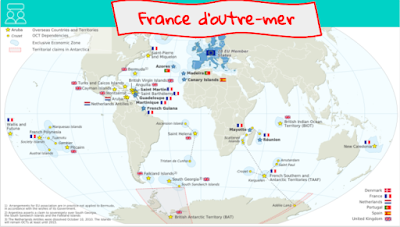Finally some long expected great news! I am so excited!!
On October 6 I was in Bulgaria, caring for my mom who had a major surgery, therefore I was not aware of the news that Miguel Cardona (the U.S. Education Secretary) had announced some major changes to the Public Service Loan Forgiveness (PSLF) Program front, which consist in relaxing a lot of the previous almost unachievable requirements for PSLF.
I came back to Michigan on October 15 and I was scrolling through the news page about student loan forgiveness, which I was periodically checking in the hope of finding out that President Biden was going to announce that he would forgive ten thousand dollars of student loans, which he talked about in his presidential campaign, when I saw an article on the changes made for the PSLF.
Now, I had never considered or applied for PSLF previously, because I was not aware that I might qualify for it. Two years prior I was trying to figure out how to deal with my never decreasing student loan and I read a little bit about these programs, but at the time the explanations were a bit vague, I did not exactly understand who is really a qualifying employer, so I did not apply for PSLF. Had I known at the very beginning what I know now, I would have taken action much earlier in this direction, but I did not know and there was no one eager to explain those rules of eligibility to me anyway. I had to dig this information myself if I had known it even existed. Anyway, all in all, it turns out that I am eligible for a PSLF now with the new relaxed rules until October 31st 2022. I can actually get credit for my past payments on my student loan, which I consolidated in 2011 and I believe I might have made already 120 payments. So, I am super excited at the possibility to have some, most or all of the loan forgiven as soon as some time this coming January.
For those who are not familiar with this, here is a quick recap of the requirements for PSLF:
If you work for a government or a non-profit employer full time, you can apply the Public Service Loan Forgiveness program. You have to make 120 payments (aka 10 years of payment) in an eligible repayment plan, and if the loan that you have is a Direct Federal Loan (it had to have the word Direct in the name of the loan), your loans will be forgiven, no matter how much you have left to pay. The rules are relaxed until October 31, 2022 and will include any past payments you have made on your student loans, no matter whether the payments were on time or for the full amount. The only requirement for your payment to count towards forgiveness retrospectively is for you to be In Repayment status (not in Forbearance, not in Deferment status).
Another relaxed rule is that now other Student loan payments can count toward forgiveness (like Parent Plus Loans etc.), as long as you CONSOLIDATE them into a DIRECT loan. How exciting is that, isn't it?
Please, visit this website to read about how to apply and all the details: https://studentaid.gov/manage-loans/forgiveness-cancellation/public-service.
I applied on October 25 after I had my current and my previous employers sign my application. On November 11 I received a confirmation that they had received my applications (I submitted two forms for my two eligible employers). On December 22, I received an email stating that my employers are approved and that my student loans will be transferred to the FedLoan Servicing (PHEAA) website by or around January 10. Then they will let me know how many qualifying payments I have made of the 120 required. So, now I just wait until January something. Fingers crossed that I have all the 120 payments made.
Here I decided to share. I hope this information is useful and helps someone else who is hoping to get their student loans forgiven. If you would like to support me and my website, please feel free to subscribe to my blog.
If you find this information useful or have any questions regarding the content of this post, please feel free to comment in the comment box below.
You could also support me through my page at Buy Me a Coffee.
Thank you for visiting my blog!





















